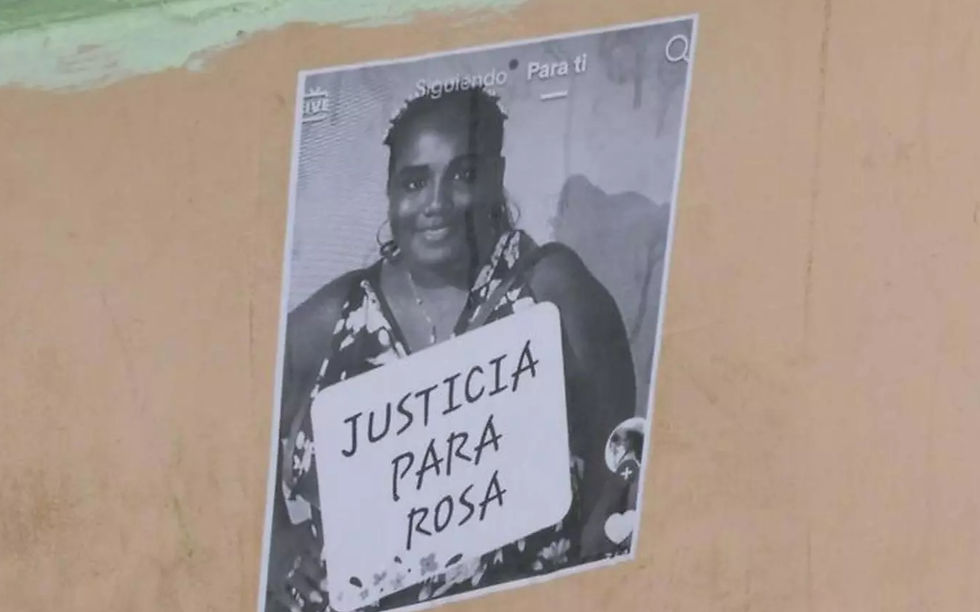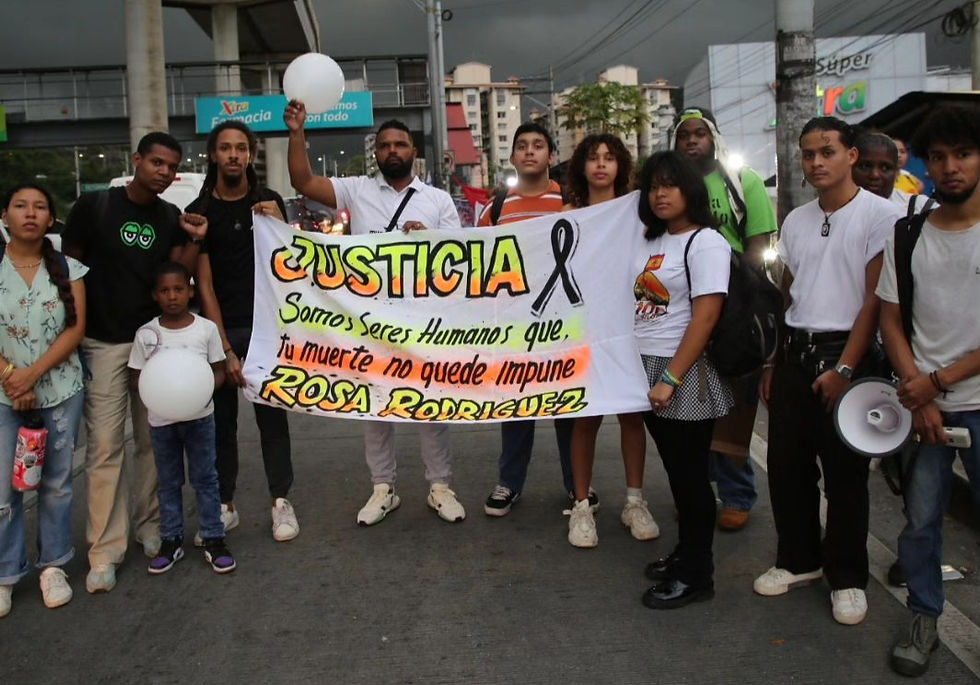By Mauri Balanta Jaramillo and Argelis V. Wesley

The normalization of gender-based violence continues to escalate femicide rates year after year throughout Latin America, making this region one of the most dangerous for women in the world. The most recent crime perpetrated against Rosa Rodríguez Rose has shocked Panamanian society not only because of the tragic loss of a young woman but also due to the brutality surrounding her physical disappearance.
Rosa Rodríguez Rose, murdered at the age of 25, becomes another clear example of multidimensional violence exacerbated by racialization, precarity, and exploitation that have historically besieged the lives of Black women. Being an Afro-Panamanian woman with a disability, homeless, and a mother of a three-year-old girl, her different layers of identity placed her in a critical context of vulnerability and discrimination.
On July 20, Rosa was doused with gasoline, resulting in burns over 80% of her body. The incident occurred in a commercial establishment in the San Miguelito district of Panama City. According to Teresa Rose (Rosa's mother), Rosa was highly exposed to such violence due to her cognitive disability and homelessness. After seven days of painful and inhumane agony, she passed away, highlighting that the guarantee of rights for women remains a significant debt of institutional society in Panama.
This tragic event underscores the urgency of recognizing that racialized women are the primary victims of violence and that the lack of differential approaches to understanding and acting upon their historical realities makes opportunities for justice and reparations even scarcer within a legal system that has also been managed under racist, patriarchal, sexist, and classist discursive practices. In fact, the vast majority of Black women victims of violence express feeling re-victimized when seeking support from state entities.

The great silences of regulations, treaties and international conventions: how did they fail Rosa?
Rosa's murder highlights the systemic failures and lack of effective protection for Black women. Although Panama has established regulations and signed international treaties for better protection of women's rights, gaps persist when it comes to institutionalizing and implementing them. One of the main factors is the lack of critical analysis within the public function regarding the structural conditions that limit the citizenship of Afro-descendant women.
According to regional data from the United Nations Population Fund, 6 out of 10 Afro-descendant women have experienced violence throughout their lives, with a higher prevalence in educational and work environments. Additionally, 23% of them have suffered sexual harassment, and more than 74% have not reported acts of violence against them for fear of not being believed or being re-victimized.
It is important to recognize how the historical struggles of women have traversed binary and heteronormative logics in state administration, creating spaces for better affirmation of their freedoms and political agencies. However, beyond legalistic grammar, the situations faced by many women like Rosa Rodríguez Rose show that there is still a long way to go toward gender equity and justice. Her tragic death is a painful reminder of the distance between institutions and the reality on our streets.
This case also highlights the very low quality of healthcare for Black women. Racial stereotypes are very present among hospital, clinic, and health center staff, based on the idea that Black women can endure any pain and do not require special care. This contributes to the progressive deterioration of their mental health, which adds to domestic violence or violence from armed actors, lack of opportunities, and other very unfortunate factors in which Afro-descendant populations in urban and rural areas of the Americas live.

What's happening with the case in Panama?
The Public Ministry is working to identify and bring to justice those responsible for the attack on Rosa Rodríguez Rose. On the other hand, the Ministry of Women is collaborating with other government entities to improve the living conditions of Rosa's surviving family members, especially her three-year-old daughter.
According to the most recent report by the Economic Commission for Latin America and the Caribbean (ECLAC) published in 2022, femicide rates are increasing in Latin America and the Caribbean. Behind Honduras, the country with the highest femicide rates per 100,000 inhabitants is Trinidad and Tobago with 5.0, followed by Belize with 3.0, and the Dominican Republic with 2.9. El Salvador and Uruguay follow with 1.6. Panama ranks tenth on this list with 1.1. The lowest rates (i.e., less than 1 victim per 100,000 women) were observed in Puerto Rico and Peru (0.9), Colombia (0.8), Costa Rica (0.7), Nicaragua (0.5), Chile (0.4), and Cuba (0.3).
Therefore, the case of Rosa Rodríguez Rose requires strong citizen oversight to ensure both reparations for the victim's family and the strengthening of the implementation of laws against such violence.
AfroResistance for Rosa Rodríguez Rose
The murder of Rosa Rodríguez Rose reminds us of the need to increase advocacy for the human rights of all Afro-descendant people, especially women and girls who bear the highest levels of social and economic vulnerability. Rosa's intersectionality — being a Black woman, mother, disabled, homeless — made her a target of multiple forms of discrimination and violence. Any attempt to honor her memory must signify a greater political commitment to eradicating all social and institutional dynamics where injustices against Black women and girls are reproduced.
On behalf of Rosa, AfroResistance renews its unwavering commitment to promoting human rights, democracy, solidarity, and justice for Black women, femmes, and girls in the Americas.
Kommentare